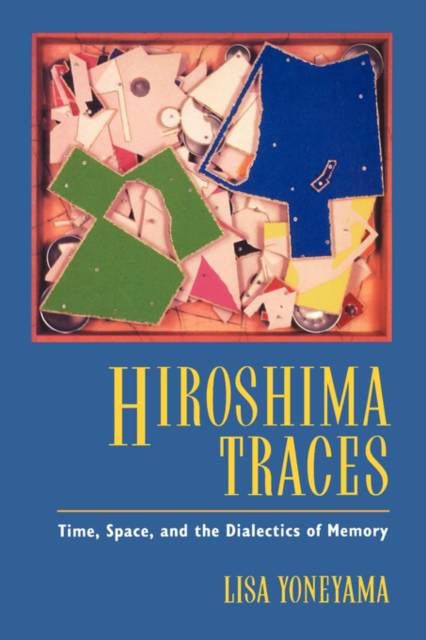
- Afhalen na 1 uur in een winkel met voorraad
- Gratis thuislevering in België vanaf € 30
- Ruim aanbod met 7 miljoen producten
- Afhalen na 1 uur in een winkel met voorraad
- Gratis thuislevering in België vanaf € 30
- Ruim aanbod met 7 miljoen producten
Zoeken
€ 57,95
+ 115 punten
Omschrijving
Remembering Hiroshima, the city obliterated by the world's first nuclear attack, has been a complicated and intensely politicized process, as we learn from Lisa Yoneyama's sensitive investigation of the "dialectics of memory." She explores unconventional texts and dimensions of culture involved in constituting Hiroshima memories--including history textbook controversies, discourses on the city's tourism and urban renewal projects, campaigns to preserve atomic ruins, survivors' testimonial practices, ethnic Koreans' narratives on Japanese colonialism, and the feminized discourse on peace--in order to illuminate the politics of knowledge about the past and present. In the way battles over memories have been expressed as material struggles over the cityscape itself, we see that not all share the dominant remembering of Hiroshima's disaster, with its particular sense of pastness, nostalgia, and modernity. The politics of remembering, in Yoneyama's analysis, is constituted by multiple and contradictory senses of time, space, and positionality, elements that have been profoundly conditioned by late capitalism and intensifying awareness of post-Cold War and postcolonial realities.
Hiroshima Traces, besides clarifying the discourse surrounding this unforgotten catastrophe, reflects on questions that accompany any attempts to recover marginalized or silenced experiences. At a time when historical memories around the globe appear simultaneously threatening and in danger of obliteration, Yoneyama asks how acts of remembrance can serve the cause of knowledge without being co-opted and deprived of their unsettling, self-critical qualities.
Hiroshima Traces, besides clarifying the discourse surrounding this unforgotten catastrophe, reflects on questions that accompany any attempts to recover marginalized or silenced experiences. At a time when historical memories around the globe appear simultaneously threatening and in danger of obliteration, Yoneyama asks how acts of remembrance can serve the cause of knowledge without being co-opted and deprived of their unsettling, self-critical qualities.
Specificaties
Betrokkenen
- Auteur(s):
- Uitgeverij:
Inhoud
- Aantal bladzijden:
- 301
- Taal:
- Engels
- Reeks:
- Reeksnummer:
- nr. 10
Eigenschappen
- Productcode (EAN):
- 9780520085879
- Verschijningsdatum:
- 16/05/1999
- Uitvoering:
- Paperback
- Formaat:
- Trade paperback (VS)
- Afmetingen:
- 152 mm x 228 mm
- Gewicht:
- 412 g

Alleen bij Standaard Boekhandel
+ 115 punten op je klantenkaart van Standaard Boekhandel
Beoordelingen
We publiceren alleen reviews die voldoen aan de voorwaarden voor reviews. Bekijk onze voorwaarden voor reviews.











